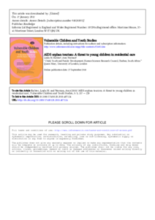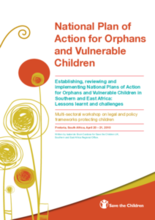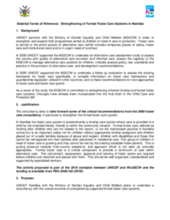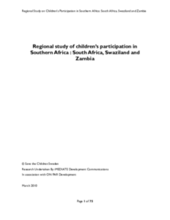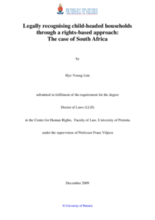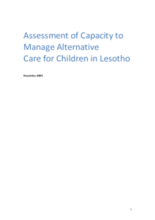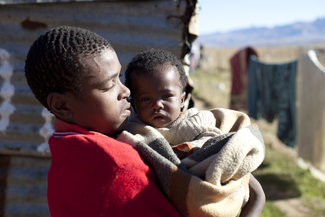

Displaying 461 - 470 of 579
This article reviews the current discourse on what is being called a crisis of care for children, as well as literature on out-of-home/family care and its adverse impacts on child development. The article also describes an emerging “AIDS orphan tourism” and highlights its negative impacts.
Retrak Ethiopia, with support from UNICEF and members from the Ministry of Women’s and Children’s Affairs, held a 4 day training aimed to equip the participants with the skills necessary to assess potential carers, match the children with the right carers, train and follow-up the carers and children, and look at some of the key issues around attachment, origins and children’s behavior.
This report focuses on the experiences of Save the Children in monitoring, implementing and reviewing NPAs in Angola, Ethiopia, South Africa, Swaziland, Mozambique, Uganda and Zimbabwe. Each of the country offices commissioned the documentation of case studies to identify promising practices and challenges around effective implementation of NPAs.
UNICEF Namibia with the Ministry of Gender Equality and Child Welfare plans to undertake a consultancy with the overall outcome of strengthening supported formal foster care systems.
This report presents the findings of a regional study on children’s participation in Southern Africa.
This article explores how established faith-based organizations that work with children affected by HIV/AIDS address the Convention on the Rights of the Child and the Millennium Development Goals in their service practices and what challenges they face.
As a result of the HIV/AIDS pandemic, there are now more than 12 million orphans in sub-Saharan Africa. The majority of these children have been absorbed into their extended families.
This doctoral thesis by Hye-Young Lim examines the laws around the recognition of child-headed households in South Africa, particularly in the context of HIV/AIDS.
The alternative care assessment examines the current social welfare systems and processes rather than on the specific quality of care in the various children’s homes as standards have already been developed.
Programme of presentations and activities

